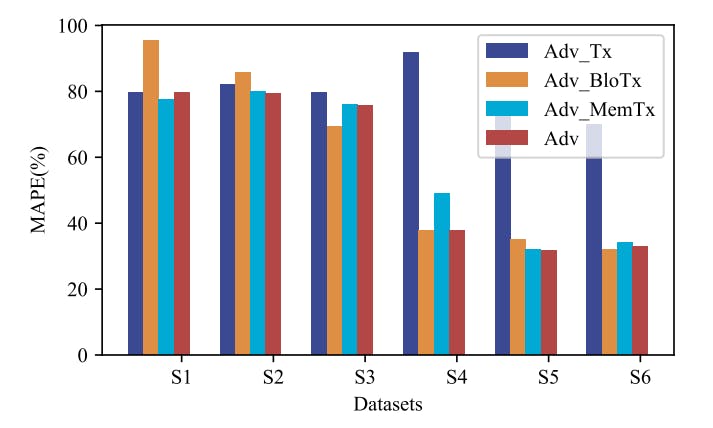Legislation to create clear rules for the cryptocurrency industry has hit a roadblock in the Senate after bipartisan negotiations broke down, leaving the bill’s path forward increasingly uncertain.
Crypto market structure legislation, which aims to establish which financial regulator will oversee different portions of the industry, seemed to be inching forward in the upper chamber.
However, progress screeched to a halt this month after a Democratic proposal for a portion of the bill was leaked, provoking sharp industry backlash and derailing talks between Republicans and crypto-friendly Democrats.
Negotiations are at a standstill with Capitol Hill preoccupied with the government shutdown, threatening the chances of passing the bill by the end of the year.
Senate Democrats and Republicans are poised to separately meet with crypto executives Wednesday in what appears to be an effort to get the ball rolling again.
“I think there are a few very strong champions that are working really hard to try to get this done,” Kristin Smith, president of the Solana Policy Institute, told reporters last week. “I’m not sure the rest of Congress is there, so I think it’s an uphill battle in the short term.”
Lawmakers have struggled for nearly a decade to figure out how to regulate cryptocurrencies, which often straddle the lines between several types of financial products overseen by different agencies.
The crypto industry has long sought legislation to draw lines between oversight by the Securities and Exchange Commission (SEC) and the Commodity Futures Trading Commission (CFTC).
The House passed its version of the market structure bill, the Digital Asset Market Clarity Act, in July. In the following months, the Senate has sought to forge ahead with its own legislation.
Republicans on the Senate Banking Committee released a discussion draft of their portion of the bill shortly after the Clarity Act cleared the lower chamber. In early September, a group of crypto-friendly Senate Democrats offered up a framework laying out their views on key issues, teeing up negotiations.
Talks hit a snag in early October, when Senate Democrats sent over what a staffer described as a “starting position” on decentralized finance regulations. The proposal, which was leaked to the press, faced swift backlash from the crypto industry.
“The disappointing proposal outlined by Senate Democrats would effectively ban decentralized finance, wallet development, and other applications in the United States — an outcome that’s neither workable nor consistent with American innovation,” Blockchain Association CEO Summer Mersinger said in a statement.
“The language as written is impossible to comply with and would drive responsible development overseas,” she added.
The leak came amid tensions over setting a date for a markup of the legislation. GOP senators, who initially hoped to bring the bill before the Senate Banking Committee in September, had been pushing their Democratic counterparts to agree to a date.
After Senate Democrats sent over the decentralized finance proposal, Republicans said they would not continue negotiations until they were able to finalize a date, a Democratic staffer told The Hill.
“They asked for paper and substance, and we delivered,” Jacques Petit, communications director for Sen. Ruben Gallego (D-Ariz.), said in a statement. “They then turned around and leaked our proposal and pretend to be surprised that our parties have policy differences.”
Gallego is part of a group of 12 crypto-friendly Democrats, including Sens. Kirsten Gillibrand (N.Y.), Mark Warner (Va.) and Cory Booker (N.J.), who have been negotiating crypto legislation.
“Their demand to set a markup date before text is agreed to is like setting a wedding date before the first date,” he continued. “It’s nonsensical. But this is likely the best they can do to distract from the fact that their caucus is not unified on this issue.”
A spokesperson for Senate Banking Chair Tim Scott (R-S.C.) said the chair and his fellow GOP members had delayed a planned Sept. 30 markup to “give Democrat colleagues additional time to come to the table and substantively engage on legislative text.”
“Despite repeated requests for edits and redlines from Democrats, they have yet to provide formal feedback or agree to a markup date,” the spokesperson said in a statement.
“The Chairman remains optimistic that Democrats will return to the negotiating table, engage in good-faith efforts to finalize the text, and set a markup date as soon as possible to deliver the regulatory clarity America’s digital asset industry needs to thrive,” they added.
The current stalemate underscores concerns about how quickly Congress can pass a market structure bill. The legislation is much more complex than the stablecoin bill that cleared both chambers earlier this year, which focused on just one segment of the industry.
“This reinforces our view that Senate action on market structure legislation is not imminent,” Jaret Seiberg, managing director and financial policy analyst at TD Securities, wrote in a policy note last week.
“It is hard to see how senators go from talking past each other to getting on the same page before the end of the year given the limited number of days the Senate is likely to be in session,” he continued.
Smith underscored that discussions on market structure began a few years later than those on stablecoins and that there are numerous issues left to be resolved — between Republicans and Democrats, the Banking and Agriculture committees, the House and Senate, federal agencies and Congress and traditional finance and the crypto industry.
President Trump and his family’s growing involvement in the industry is also a complicating factor, she noted.
“I wish this weren’t the case,” Smith said. “I think it would be great to get a really strong framework in place. I’m just not sure that that Congress is there in the short term.”
Recent efforts by the SEC and CFTC to provide guidance on crypto have made this less of a pressing issue, she added. The industry previously voiced frustrations with the SEC under the Biden administration, which it accused of failing to provide clear guidance and regulating by enforcement.
Under the Trump administration, both agencies have launched crypto-focused efforts, particularly in the wake of a report from the president’s digital assets working group that recommended they “use their existing authorities to immediately enable the trading of digital assets at the federal level.”
Trump himself could push these efforts along, as he did with the stablecoin bill earlier this year, Smith noted.
“I will say [what] Donald Trump wants, Donald Trump gets,” she said. “If he decides he really wants this and wants to come in and broker a deal, that I think could be the wild card that speeds this up. But I think he’s feeling pretty strong at the moment off of his summer victories, and I don’t see him personally getting involved before the end of the year.”
Seiberg suggested that market structure legislation “may need to wait until the midterm election,” noting that there are “more reasons for senators to delay action than to move quickly.”
However, there does seem to be some new movement happening. Senate Democrats are poised to meet with crypto executives Wednesday, according to a Democratic staffer.
“What I think I want to hear from [executives] is the understanding that this is a bipartisan bill, and we will not be rushed, and [neither] the industry nor Republicans can rush this,” Gallego told reporters Tuesday.
There will also be a separate meeting Wednesday with Senate Republicans, an industry participant confirmed to The Hill.
As the two sides remain at odds, Mersinger on Friday urged them to “stay at the table.”
“Let’s revise, not retreat,” she wrote on the social platform X. “Together, we can protect consumers, fight illicit finance, and lead the world in open, secure financial technology. Reopen the process and return to bipartisan negotiations. The future of American financial innovation depends on you.”









